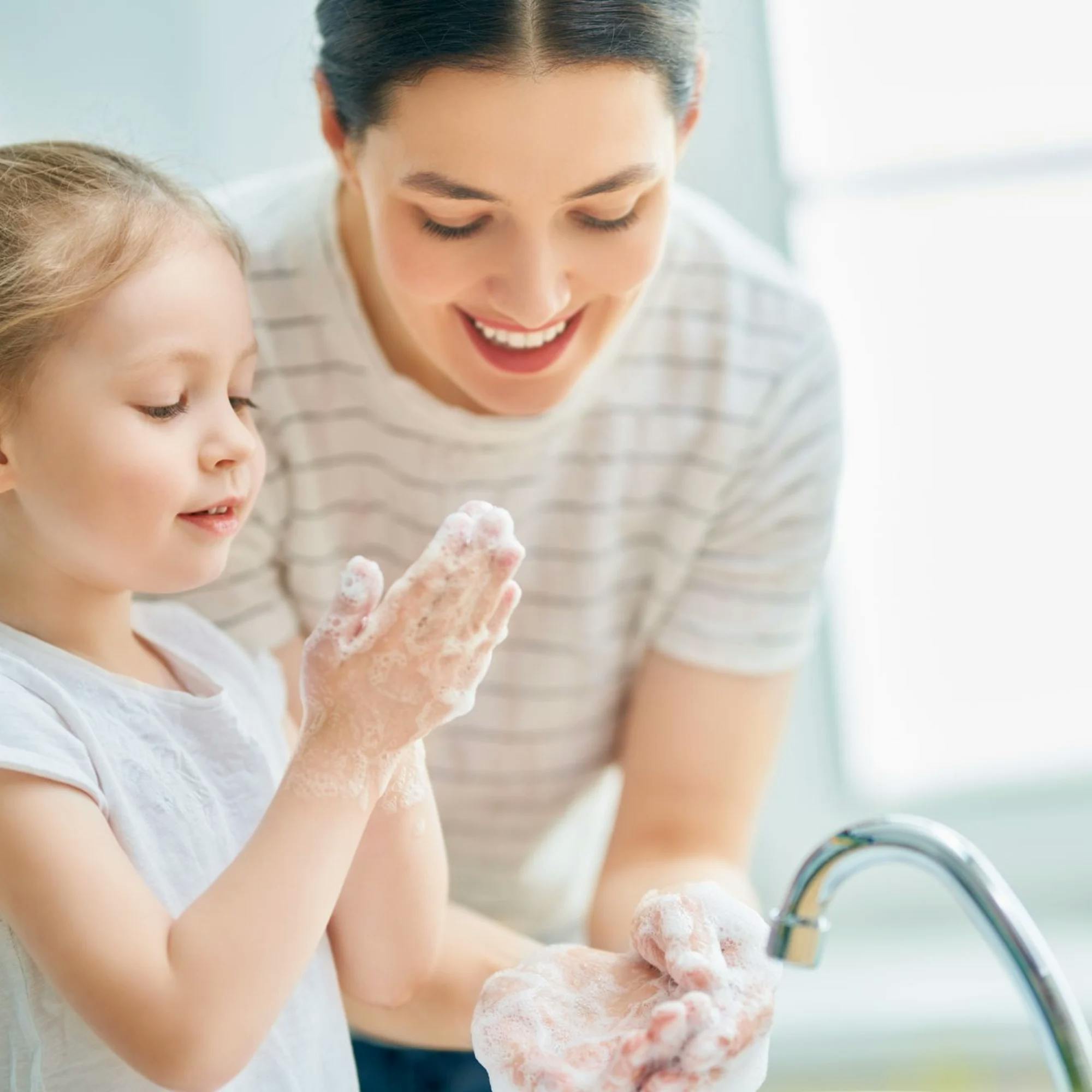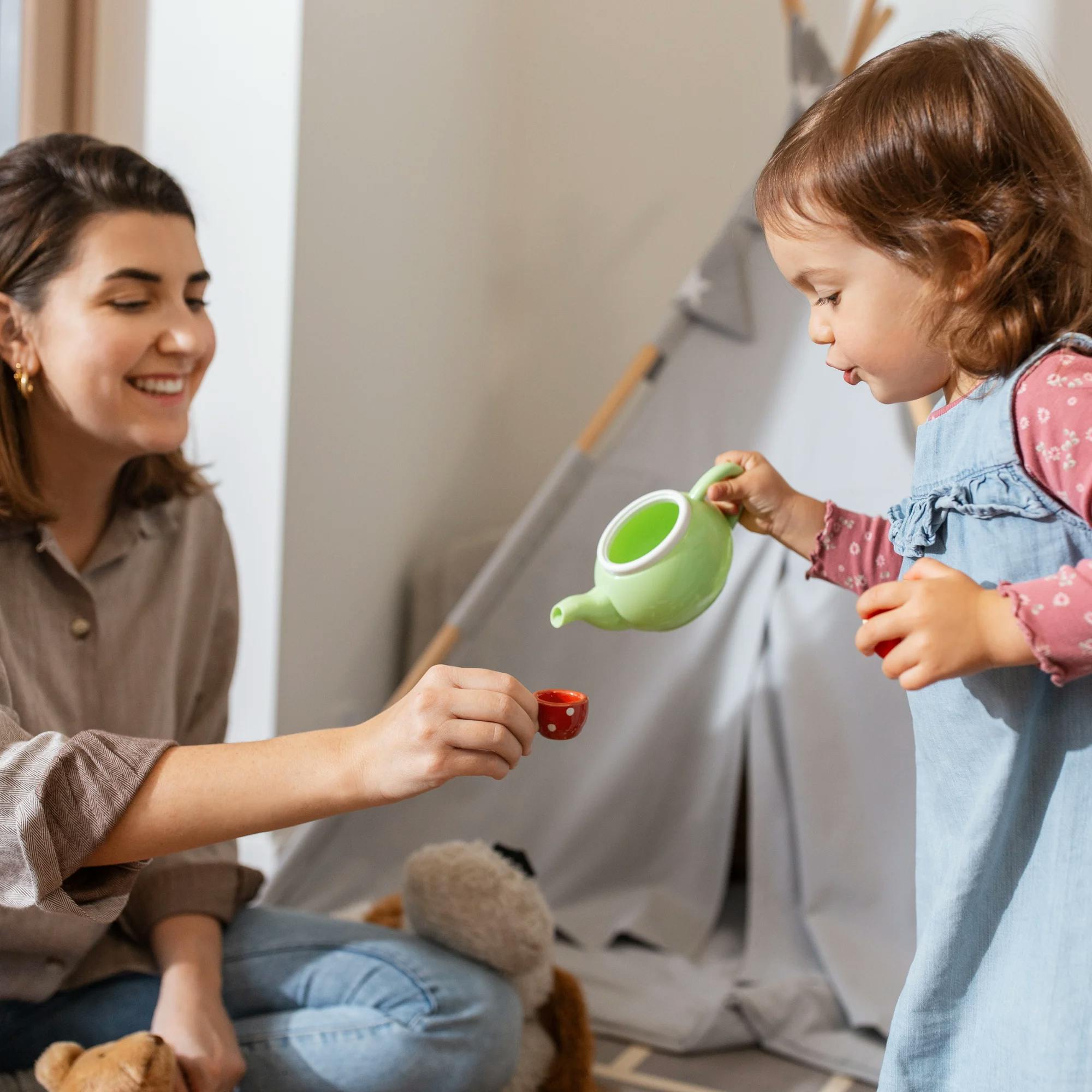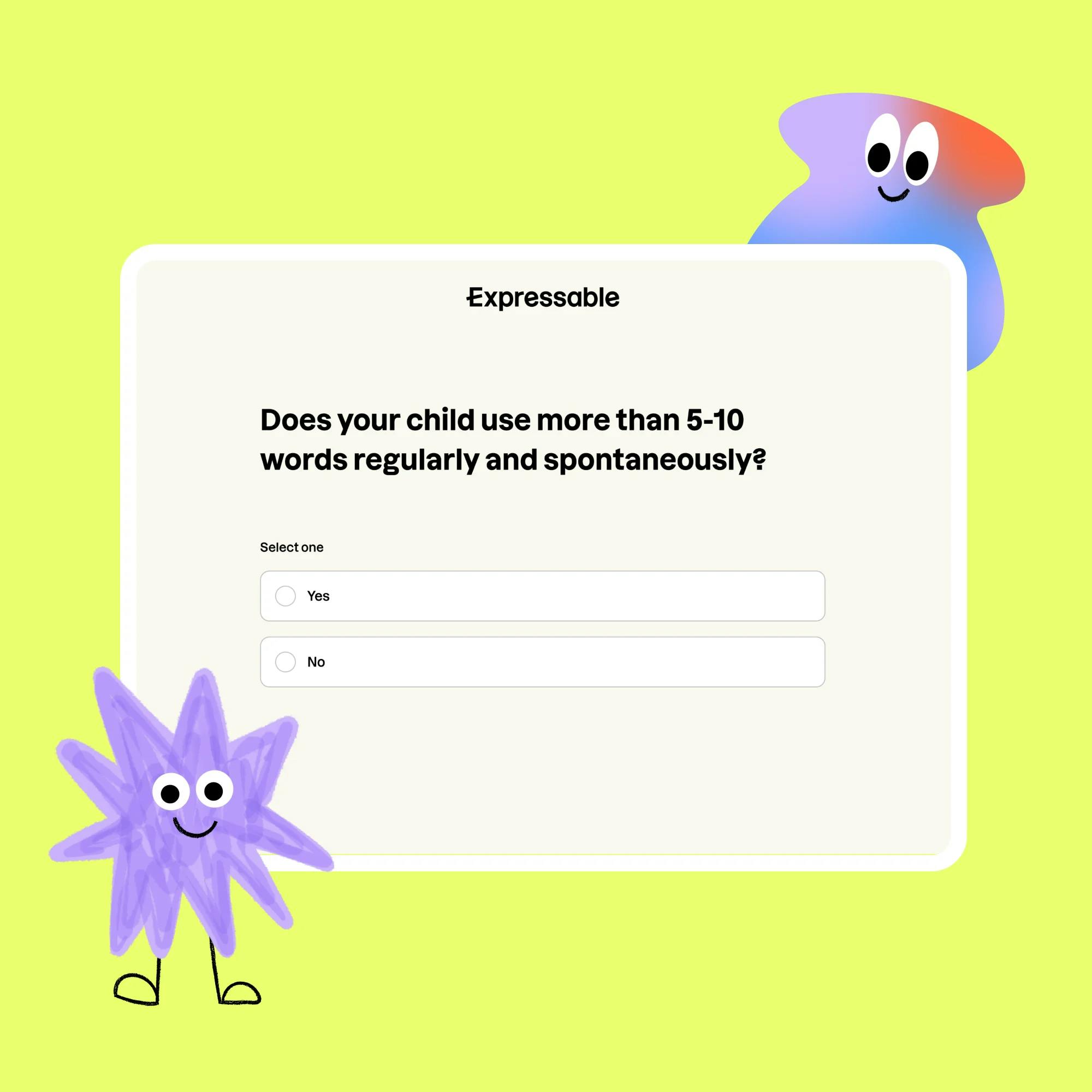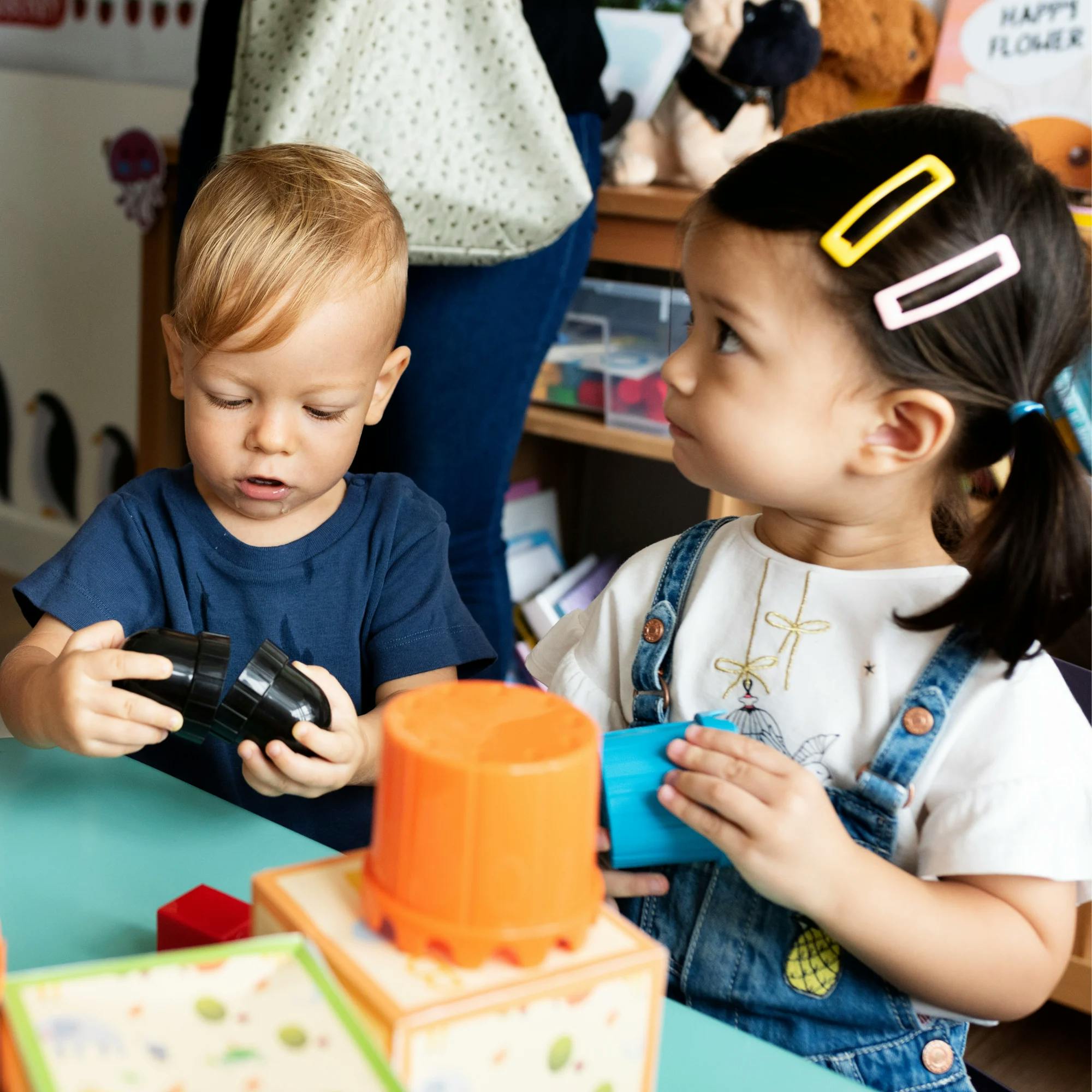The first three years of life are a significant time for brain development in children. So once a child hits their third year, you should be seeing quite a lot of speech and language growth!
You may be wondering if your 3-year-old's development is on track. Let’s review the speech and language milestones to look for during your child’s third year, as well as signs that speech therapy may be helpful for your toddler.
Is your child on track?
Take our free screener to learn more about your child's development and whether a speech evaluation is recommended.
 Screener for children
Screener for childrenReceptive language milestones in 3-year-olds
Receptive language refers to the words a child can understand. There are many receptive language milestones you should be seeing in your child by age 3. They will have likely made big jumps in receptive language during their second year, so the receptive milestones established in year 3 will build on those. You can check out 2-year milestones here.
3-year-old receptive language skills
Can identify colors by name
Understands names of shapes
Understands family names (sister, grandma, etc.)
Begins to understand descriptive words like “big” or “bumpy”
Can follow multistep directions (“Put down your backpack, put your shoes by the door, then go sit at the table”)
Overall, you should notice your child understanding more and more of what's spoken to them. This should help them learn to use more words expressively.


Expressive language milestones in 3-year-olds
Expressive language refers to how someone communicates, either verbally or nonverbally. For many kids, a large amount of verbal growth happens during their third year. Let’s review these skills.
3-year-old expressive language skills
Asks who, what, where, when, and how questions, like "Where is Mommy?"
Uses plural “s”
Uses verbs with “ing,” like “walking” or “sleeping,” and can name these actions in pictures, such as when reading a book with you
Can express their ideas and feelings verbally
Talks to you in conversation using at least two back-and-forth exchanges
Discusses what they've done that day
Says their first name when asked
As you can see, during a toddler's third year, they should be expanding their correct grammar usage, the types of things they can talk about, and even the length of their sentences. On the whole, they should be able to communicate with others much more easily.
Speech sounds for 3-year-olds
As children grow, they should be able to say more consonants correctly. When a child turns 3, they should be able to say the following sounds: /g/, /k/, /f/, /t/, “ng,” and “y.”
And don't forget that these earlier sounds should be mastered by age 2: /b/, /n/, /m/, /p/, /h/, /w/, and /d/.
If your 3-year-old has trouble with any of these sounds, it may be a sign of a speech sound disorder. This is when kids are either missing speech sounds or saying them incorrectly.
When observing your child's development, keep in mind their speech intelligibility, or clarity. At age 3, children’s speech should be understood about 75% of the time by familiar listeners--people like family members who talk with them often. The number may be lower for unfamiliar listeners.
Play skills in 3-year-olds
Another skill that’s developing rapidly at this age is your child’s ability to play. They're beginning to learn how to interact with and play with peers. Three-year-olds can engage in something called associative play. This is when they play near other kids, and may even share toys, but don’t play the same activity together. For example, if your child is playing in the sandbox with other kids at the park, they may share the same shovels and buckets, but they would each build their own sandcastles. They wouldn't build one together.
Play is an excellent way you can help your child learn communication skills!
Believe it or not, play is an excellent way you can help your child learn communication skills! Playing together can prompt communication. Maybe your child has to ask for a certain toy, or ask you for help. These are natural chances for your child to practice communicating.
Not to mention, playing is fun! It helps motivate your child to do new things that may feel challenging otherwise. If you're helping your child learn to say new sounds without a fun activity, it may feel hard, and they may not be interested. But if you're practicing as you play a game together, they're more likely to stay motivated.
Take a look at our therapist-recommended top toys for 3-year-olds here!
How do I know if my 3-year-old needs speech therapy?
Reviewing the milestones for receptive and expressive language, as well as speech sound production, should give you an idea of whether your child may need speech therapy. If your child is 3 years old and not meeting some of these skills, it's likely time to talk with a speech therapist.
A 3-year-old may need speech therapy if they're not yet using three-word phrases or their speech is hard to understand.
Some of the big clues that a 3-year-old needs speech therapy is when they're not yet using three-word phrases, or their speech is very hard to understand.
You should also consider how confident your child feels in their ability to communicate. If you notice them shying away from talking to others, or feeling frustrated because they can't be easily understood, this is another reason to talk to a speech therapist.
Find the right speech therapist for your child
We'll match you with a licensed speech therapist who's experienced in your child's needs and available when you are.
 Get started
Get startedIt's best to start therapy as soon as possible. Speech and language skills build on one another. So if your child is behind in one area, they need to master that skill in order to learn the next ones. Speech therapy can help a child catch up to where their communication should be developmentally
What does speech therapy for 3-year-olds look like?
If you’re wondering what speech therapy is like for toddlers, you’re not alone. Many parents and caregivers are aware of speech therapy, but they may not know the ins and outs.
The great thing about speech therapists who work with kids is that they know exactly how to make it fun and engaging--and keep kids learning.


When beginning speech therapy, your speech therapist will likely start with an evaluation to assess your child's abilities and create goals for therapy. Each child is different, so their goals will vary. But your speech therapist will know exactly which goals to target in order to improve your child’s communication. Let’s say your child can say a lot of words, but they're hard to understand. Your speech therapist would work on helping your child learn to say sounds and words more clearly.
Never underestimate how much you can help your child with their communication goals.
The length of time in therapy will vary per child. It depends on factors such as the severity of the child’s speech or language issue and how often practice happens outside of speech therapy. Here’s a secret: The more often a child practices between sessions, the faster they'll make progress!
Never underestimate how much you can help your child with their communication goals. Your speech therapist will explain specific things you can work on at home. Feel free to ask as many questions as needed. Your speech therapist is there to help you!
How Expressable Can Help
Concerned your child isn't reaching age-expected milestones? Looking for communication support from a professional? Expressable is a national online speech therapy practice serving children and adults. We treat all major areas of communication and feeding, offer flexible hours including evenings and weekends, and accept most major health insurance plans. We’re proud to have earned more than 3,000 5-star reviews from our clients (4.9/5 average).
Our therapy model is centered on parent and caregiver involvement. Research proves that empowering caregivers to participate in their loved one’s therapy leads to better outcomes. That’s why we combine live, 1-on-1 speech therapy with personalized education and home practice activities for faster progress.
Communication is more than words. It’s how we share how we feel and show who we are. We’re here to help you or your child do just that.

 Abby Barnes, M.S., CCC-SLP
Abby Barnes, M.S., CCC-SLP












